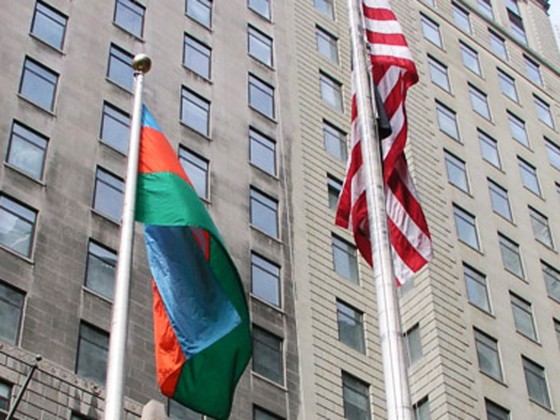
Azerbaijan’s Embassy in the US was tasked to clarify the role played by Victoria Nuland, the US assistant secretary of state for European and Eurasian affairs, with regard to a resolution on Nagorno-Karabakh, which wasn’t passed by PACE, said Foreign Minister Elmar Mammadyarov.
“Our diplomatic mission is working with the Congress and the White House,” said the minister Feb. 10. “More details will be disclosed after that work is done.”
Earlier, in an interview with an Armenian newspaper, US Congressman Adam Schiff said Nuland played a special role in the non-adoption of the said resolution by the PACE.
Schiff said that prior to the discussions on the resolution, he appealed to the US Department of State and a regional ambassador, expressing his stance and stressing that the resolution is “one-sided” and “supports Azerbaijan”.
He added that both the ambassador and Nuland said they would work on the issue.
Previously, the Parliamentary Assembly of the Council of Europe (PACE) adopted a resolution on a report titled “Inhabitants of frontier regions of Azerbaijan are deliberately deprived of water.”
The report prepared by MP Milica Markovic, representing Bosnia and Herzegovina, was adopted Jan. 26 at the PACE Winter Session in Strasbourg.
However, the second resolution on the Nagorno-Karabakh conflict was not passed by the PACE.
The conflict between the two South Caucasus countries began in 1988 when Armenia made territorial claims against Azerbaijan. As a result of the ensuing war, in 1992 Armenian armed forces occupied 20 percent of Azerbaijan, including the Nagorno-Karabakh region and seven surrounding districts.
The two countries signed a ceasefire agreement in 1994. The co-chairs of the OSCE Minsk Group, Russia, France and the US are currently holding peace negotiations.
Armenia has not yet implemented the UN Security Council’s four resolutions on the liberation of the Nagorno-Karabakh and the surrounding regions.
Trend
